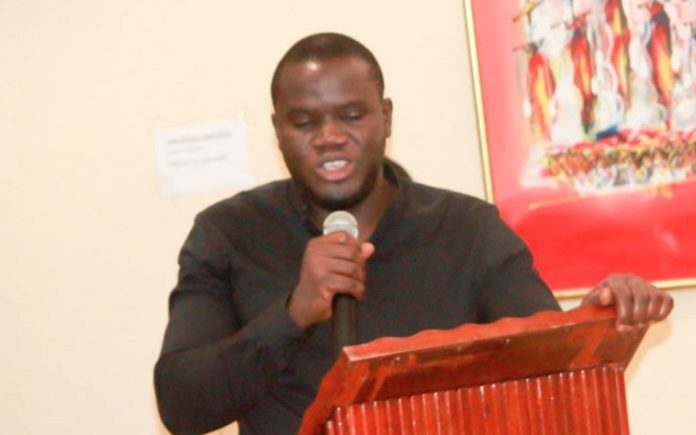By Yankuba Jallow
Sheriff Bojang Jnr. the President of The Gambia Press Union has told members of the Judiciary that freedom of information and expression strengthens good governance.
Bojang was addressing a gathering of members of the judiciary both from the bench and the bar in a two-day consultative meeting for lawyers and judges on Freedom of Expression and Information. The forum dubbed bench-bar-media will also discuss the role of the judiciary in promoting democracy.
The consultative meeting will also review the draft press, bar and bench guidelines concerning news coverage of matters dealing with the administration of justice in The Gambia, having regard at all times to the right of the public to know. The consultative meeting aims to raise awareness on freedom of information and expression issues that judges and lawyers can apply on their day to day work.
In 2017, the United Nations Democracy Fund (UNDEF) approved a grant of US$220,000 for the Gambia Press Union (GPU) to implement the project titled ‘Enhancing Media-Government Relations to Improve the Legal Environment for Freedom of Expression’ in The Gambia.’ Since then, the GPU has worked with a range of national and international actors – state and non-state – towards promoting an enabling environment for the exercise and enjoyment of the right to freedom of expression as a catalyst for strengthening democracy and sustainable development.
The GPU has recently drafted a Freedom of Information Act and presented it to the Government of The Gambia through the Ministry of Justice. The Union since the coming of the Barrow led-government has always been engaging stakeholders including the Ministry of Information and Communication to amend or repeal all bad laws that criminalize speech and expression.
He indicated that freedom of information and expression is dear to the media fraternity.
“We all benefit from these freedoms – it is beneficial to all of us. Freedom of information and expression is not only about the media but to a large extent, it is about the people,” he said.
He put forward that these freedoms form top priority to the GPU. He enjoined the lawyers and judges as well as magistrates to come up with ideas that will make these freedoms a reality in The Gambia. He said the media values their relationship with the judiciary as he challenged them to come up with ideas that will build up the correlation especially in terms of accessing information from the courts.
Femi Falana, a senior lawyer from Nigeria said only twenty-two (22) countries in Africa excluding The Gambia have enacted the Freedom of Information Act. He called on the Gambian authorities to enact the Freedom of Information Act and as well repeal all laws that threaten the work of the media. He said criminal libel and publication of false news were declared unconstitutional by the Supreme Court of The Gambia.
He said sedition still forms part of the criminal laws of The Gambia even though the ECOWAS court has given a directive to The Gambia to amend that provision of the Criminal Code. He called on the Government of the Gambia to adhere to this and other orders of the ECOWAS Court.
Salieu Taal, the President of The Gambia Bar Association argued that Freedom of Information should be absolute and guarded jealously. He thanked the media for leading the call for freedom of information and expression.
Mr Abubacar Tambadou, the Minister of Justice of The Gambia said in March 2017, he introduced his Ministry’s transitional plan wherein paragraph 28 deals with freedom of information. He made a commitment that there will be an amendment of all laws that do not support freedom of information and expression and repeal or replace them with appropriate laws. He said his Ministry since taking over has engaged partners including the GPU and Article 19 in many ways in pursuit of press freedom including freedom of information and expression.
He said his Ministry is in the process of reviewing the Freedom of Information Act that was presented to them by the Gambia Press Union. He added that there will be a general media Act, noting that all bad laws will be repealed and those that need amendment will be put in one Act.
“Laws that criminalize speech will be repealed,” Tambadou said.
He boasted that no journalist has been prosecuted by their Government for practising their profession. He called on the media to set a standard to ensure professionalism in their work; this includes verifying facts, conduct research particularly on technical issues among others.
Other speakers included Justice Gibril Samega Janneh, a judge of the Supreme Court of The Gambia and Saikou Jammeh, the Secretary-General of The Gambia Press Union all of whom made similar comments like other speakers.




















